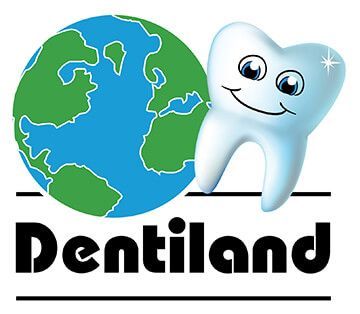Dentiland has partnered with a reputable business hotel in walking distance to our Dental clinic. Please contact our office for more information.
Dentiland has partnered with a reputable business hotel in walking distance to our Dental clinic. Please contact our office for more information.
Periodontal Disease - Protecting your teeth and gums at Dentiland
Dentiland, in Tijuana MX, understands the importance of healthy gums. Untreated periodontal disease (also known as gum infection) can cause serious damage to your oral health and lead to tooth loss. Our expert team, led by Dr. Licon provides comprehensive periodontal care to patients. We can help you restore your oral health, whether it's in its early stages or if the gum disease is more advanced.
What is Periodontal Disease (PD)?
When the tissues that support and surround your teeth are affected by periodontal disease, plaque, a colorless, sticky film of bacteria that forms on your teeth, is the first sign. If plaque isn't removed with regular brushing and swishing, it can turn into tartar. This can only be removed professionally. Plaque and tartar contain bacteria that irritate gums, causing inflammation. This can lead to the gums pulling away from the teeth over time. Pockets can form that are infected. In severe cases of periodontal diseases, tooth loss and bone destruction can occur.
Periodontal disease can be divided into two stages:
- Gingivitis: This is the earliest stage of gum disease, gingivitis, which is characterized by inflammation, swelling, and redness. This stage can be reversed with proper oral hygiene and professional care.
- Periodontitis: This is a more advanced form of gum disease where the infection has spread deeper into the tooth's supporting structures. If left untreated, it can lead to gum recession, tooth loss, and loss of support.
Symptoms of Periodontal Disease
Periodontal disease symptoms can be varied, particularly in the early stages. The following are some of the most common symptoms to look out for:
Swollen or Red Gums
Gums bleeding when you brush your teeth or floss is a sign of gum disease. Your gums could be infected if they appear red or swollen.
Bad breath (Halitosis)
A persistent bad smell, even after brushing or rinsing the mouth, may indicate a bacterial infection.
Receding gums
As periodontal diseases progress, the gums can begin to pull away, making your teeth appear longer.
Loose and Shifting teeth
Advanced periodontal disease can cause tooth mobility, which may result in loose or shifting teeth.
Pain when chewing
If there is pain or discomfort while you are chewing it may indicate that your gums have advanced or damaged structures.
Pus between teeth and gums
If you see pus between your gums and teeth, it is a sign of infection that requires immediate dental care.
It's vital to make an appointment as soon as you can with Dr. Licon to avoid the disease progressing.
Causes and Risk Factors for Periodontal Disease
Poor oral hygiene, which allows plaque and tartar buildup on teeth, is the primary cause of gum disease. Gum disease can be caused by several factors, including:
- Tobacco Use: Smoking or chewing tobacco increases the risk of gum disease and makes it difficult for your gums to heal after treatment.
- Poor nutrition: A diet lacking in vitamins and minerals (especially vitamin C) can affect the body's capacity to fight infections, such as gum disease.
- Genetics: Some people are genetically predisposed to gum disease despite practicing good oral hygiene.
- Age: The risk for gum disease increases with age. People over 65 are at higher risk for periodontal disease.
- Medical Conditions: Conditions like diabetes, heart disease, and certain autoimmune disorders can increase your risk of gum disease. Medications that dry out the mouth or cause gum disease can also contribute to periodontal diseases.
- Medications: Certain medications, such as those that cause dryness of the mouth or interfere with your immune system, can harm your gums.
- Hormonal Differences: Changes in hormones during pregnancy, menstruation, or menopause may make gums sensitive and increase the risk of gum disease.
- Stress: Stress can harm your immune system, making it difficult to fight infections and gum disease.
Treatment for Periodontal Disease
The severity of your periodontal condition will determine the treatment plan. Dr. Licon works closely with you to determine which treatment is best for your gums.
Early-stage gum disease is treated primarily with improved oral hygiene and professional cleanings. If the gum disease has advanced to periodontitis, non-surgical treatment options may include:
- Scaling and Root Planing (SRP): This deep cleaning process removes plaque and tartar both above and beneath the gumline. The roots of teeth are also smoothed to prevent plaque buildup and encourage the gums to reconnect with the teeth.
- Antibiotics: Topical or oral antibiotics are sometimes prescribed to control infection and reduce inflammation.
In cases of advanced periodontal diseases, surgical intervention is sometimes required. These procedures aim to restore gum health, stop further damage to the teeth, and support the jaw bone. Surgical options include:
- Pocket Reduction Surgery: This procedure involves lifting the gums back to remove bacteria and tartar. The gums will then be sutured in place, reducing the size of pockets between teeth and gums.
- Bone grafts: If periodontal disease has caused bone loss, a bone graft can be used to regenerate bone tissue to restore support for the teeth.
- Soft tissue Grafts: If the gum tissue has receded considerably, soft tissue grafts may help cover exposed roots.
To prevent a recurrence of periodontal disease, it is important to continue your care after treatment. Dr. Licon recommends regular cleanings and examinations to maintain healthy gums. You may be instructed on how to maintain proper oral hygiene at your home, such as using correct brushing and flossing techniques.
Preventing Periodontal Disease
Prevention is the key to maintaining healthy gums and avoiding periodontal diseases. Here are some tips on how to protect your gums.
- Brush Your Teeth Twice Daily: It is recommended that you brush your teeth twice daily with fluoride toothpaste and a toothbrush with soft bristles. This will help remove plaque and bacteria.
- Floss Daily: Flossing is a great way to remove plaque and food particles from the areas between your teeth. It also helps you reach places that your toothbrush might miss.
- Schedule regular dental check-ups: Schedule routine dental examinations and cleanings every 6 months or as Dr. Licon prescribes. Regular dental visits can help detect early gum disease symptoms and allow for timely intervention.
- Eat a Healthy Diet: A healthy diet rich in vitamins, minerals, and other nutrients helps the body fight infections, including gum disease. Avoid sugary drinks and foods that may contribute to plaque formation.
- Stop Smoking: Quitting smoking can reduce your risk for gum disease and improve the overall health of your mouth.
- Manage stress: Stress reduction can strengthen your immune system and make fighting infections, including periodontal diseases easier.
Why Choose Dentiland for Your Periodontal Care?
Dentiland's Dr. Licon and our entire team are dedicated to providing the best possible care for periodontal patients. We use the most advanced techniques and technologies to diagnose and treat gum disease, ensuring the best outcomes for your dental health. We know that gum disease is a sensitive topic, so we strive to create a compassionate and comfortable environment for our patients.
Schedule Your Periodontal Evaluation Today
Do not wait if you are experiencing gum disease symptoms or haven't had a dental examination in a long time. Early detection and treatment are essential for preventing tooth decay and maintaining your smile. Dentiland can help you schedule a consultation today with Dr. Licon. Our team will help you achieve optimal dental health and a beautiful, healthy smile.
Cofepris permiso 2302022002A00138
FF-COFEPRIS-13 2302022002A00138
FF-COFEPRIS-02 2302025036X00873
FF-COFEPRIS-13 2302022002A00138
FF-COFEPRIS-02 2302025036X00873
204, Ignacio Comonfort 9350, Zona Urbana Rio Tijuana, 22320 Tijuana, B.C., Mexico



